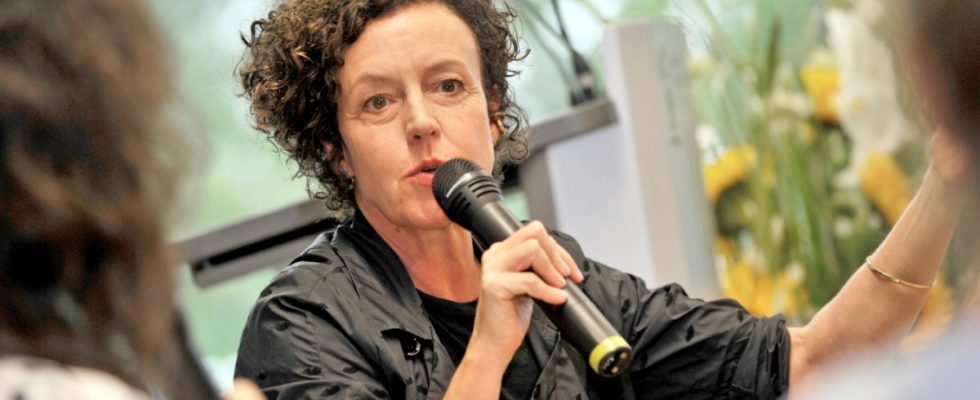The drama about the investigation of the film producer and sex criminal Harvey Weinstein, filmed in “She Said” (2022). Previously the critically acclaimed film Ich bin dein Mensch (2020) about a woman who falls in love with an artificial intelligence with a man’s body. Or the Netflix series “Unorthodox,” which tells of a young woman’s escape from an Orthodox Jewish community in Brooklyn. It is this precise perspective on her protagonists that makes Maria Schrader’s directorial work so fascinating. Now the filmmaker, screenwriter and actress was a guest at the tenth film talk at the Five Lakes Film Festival. At the Academy for Political Education in Tutzing, she and her colleague director Julia von Heinz (“Hanna’s Journey”, “And tomorrow the whole world”) discussed the question of whether films have a gender. It was moderated by Sylvia Griss from Bayrischer Rundfunk.
Both women not only direct, but also write their own screenplays. For Schrader, this writing is a kind of empowerment. “Sometimes I think I’m the only person in the whole world who really understands this person, this role. Some roles you just have to write yourself,” says Maria Schrader. “Women have no talent for megalomania. You are directly portrayed as unsympathetic or arrogant,” Julia von Heinz experienced in the film and television industry.
Maria Schrader remembers her beginnings as a director. With all her filming experience as an actress, she says, she wasn’t afraid to be on set per se. Nevertheless, she felt mistrust from some at the beginning. An eye roll here, a weird comment there. Different ideas regarding the implementation of individual scenes. Many male colleagues don’t care what others think of their work or their vision. However, critical reactions unsettled Maria Schrader.
Julia von Heinz is a director, screenwriter and camerawoman. The AfD complained in the Bundestag about its feature film “And tomorrow the whole world”.
(Photo: Nila Thiel)
Julia von Heinz can answer the question of whether the director always has to appear strong and self-confident with a resounding no: “I cry on the set. Be it for joy or because something overwhelms me. I can’t control my emotions during the incredibly strenuous shooting phases anyway hide.” She doesn’t see this as a weakness in leadership, it’s more about being authentic.
The conversation turns to Maria Schrader’s highly acclaimed film “Vor der Morgenrote” (2016) about Stefan Zweig’s time in exile in South America before his suicide. Both directors find the topic of flight to be burningly topical, especially in view of the war in Ukraine. And the filmmakers also agree on the topic of “quota”. Julia von Heinz is a co-founder of the non-profit association “ProQuote Film”, which demands that 50 percent of the projects and funding go to female directors.
For a long time, every story told on film was in the hands of men. An interesting question for Maria Schrader, and the memory of one of her most beautiful film roles: whether “Aimée und Jaguar” (1999) by Max Färberböck, which tells the dramatic love story of two women during the National Socialist era, wasn’t actually shot by a woman must? Maria Schrader doesn’t think: “Everyone should be able to tell every story. That’s also equality”. After all, not every male person has the male gaze. The term describes how male filmmakers implement the portrayal of female characters. Women are often sexualized or objectified. Conversely, not every woman has the feminist view, “female gaze”. In the end, what matters is a sensitivity and an understanding of the character, the filmmakers add.
The final piece of advice that Julia von Heinz can give to young female directors: Don’t be afraid of being a mother, because having a family doesn’t make you a bad director and, above all, it shouldn’t be an issue that has to be kept secret .

